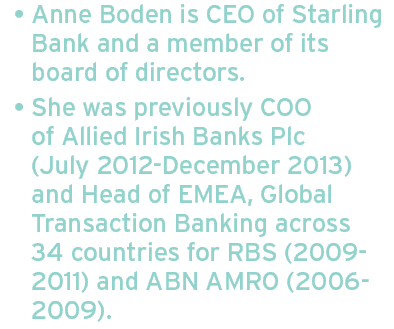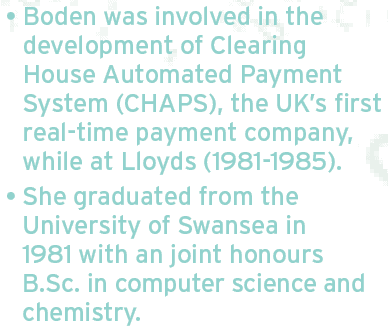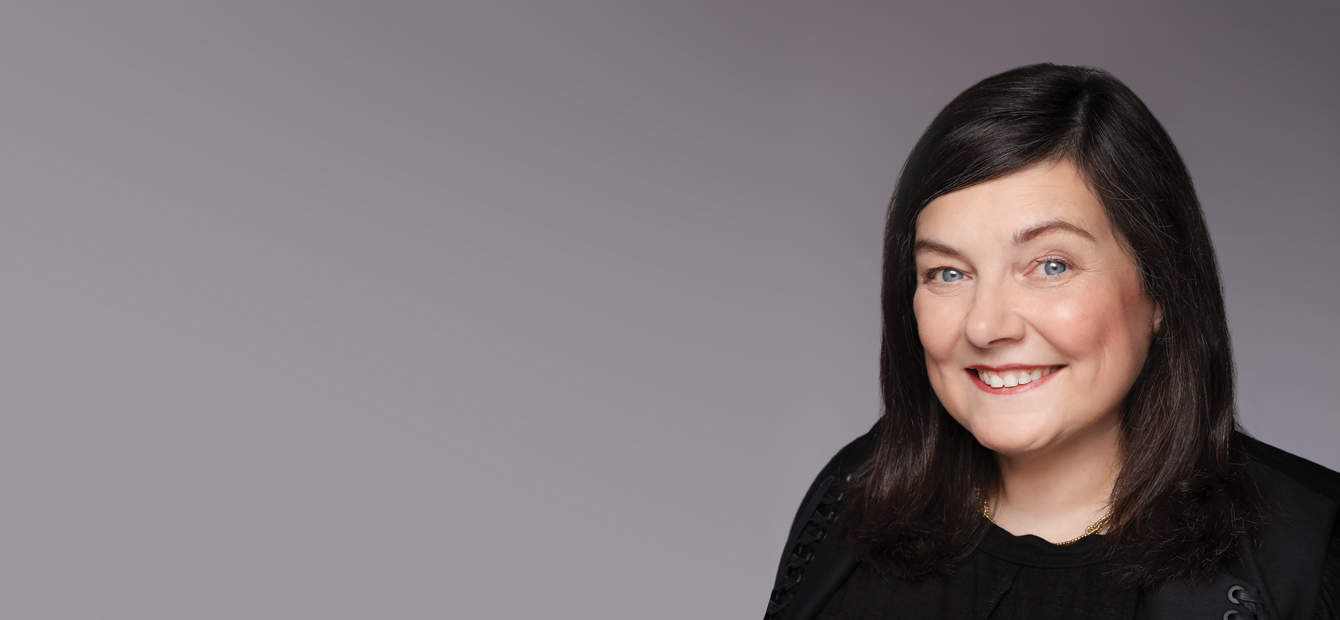Anne Boden, CEO and founder of the digital-only Starling Bank, tells Business & Finance how she pledges to make consumers’ financial lives a lot easier – and, more importantly, a lot healthier.
For over 35 years, Anne Boden has pitted her wits against the best in the financial industry. The realisation that kick-started her journey into the realms of ‘digital-only’ banking was a need for seamless business-to-customer (B2C) interaction that she felt was lacking in the banking sector. “A lot of things have changed in the world of technology, and people; individuals have changed,” Boden notes.

Starling, Boden’s digital-only bank, pledges to bring banking back to the customer. “On our app you can see how much you’re spending in each category: day-to-day spending, leisure activities and so on. Once you open up transactions, you know how much you’ve spent so you can control day-to-day spending.” This is coupled with Starling’s 24/7 support approach and the keywords in the digital-bank’s repertoire: ‘control’ and ‘health’.
Digital-only is a concept that has been growing in the industry for a number of years and is starting to see the light now. Starling has some competitors in its eyeline such as Monzo and Tandem, whose modus operandi it is to create trustworthy marketplaces for customers in uncertain times.

That competition is heating up. In April of this year Monzo had its UK banking licence restrictions lifted and can now offer current accounts to its customers, a niche feature that was initially unique to Starling. Boden is still optimistic about her company’s endeavours, however, and the feedback the app is receiving has them in a good frame of mind. “We’re getting wonderful reviews on the App Store. The other banks have a lot of catching up to do. It’s so great to see that people enjoy using [our product],” she says.
Customer interfacing is hugely important to her and her banking strategy. “I spent a lot of time listening to customers. I came to the conclusion that it was easier to start from scratch. In 2014 I spent a bit of time in Australia and the US asking what banks there were doing in retail banking:” experience that stood her in good stead for developing Starling.
BLOCKCHAIN GANG
Other challenges in the market are already proving trickier. Among these is cryptocurrencies – and the introduction and insurgent technological development of bitcoin. The digital currency and transfer system have been widely hyped as high-profile disruptors in the headlines this year. The financial industry has shown few signs of being threatened thus far, but with the likes of contactless payments, digital wallets and virtual banking, intrusive technologies can become a burdensome load for more traditional structures. Right now Starling is keeping its distance from the virtual currency. “At the moment the blockchain has a lot of uses, but it’s a technology, and we currently do not support bitcoin,” explains Boden.
Currently this looks an astute strategy as bitcoin is a notably volatile force in the markets, dropping heavily at the start of September. Distrust surrounding security and the newness of the blockchain transfer-verification network make for uncharted territory for the banking sector. Boden makes the important distinction of bitcoin being a technology rather than being an established system that can easily be integrated into the banking sphere.
FROM BREXIT TO A BANKING REVOLUTION
The shock Brexit result of last year has dropped uncertainty upon the business and political environments. Issues such as trade, money and people are far from resolved as the UK and EU try to come to a deal. The financial services sector is one of the most disrupted as many are considering relocating to areas still part of the European Union that have low corporation tax rates. Boden’s connection to Ireland as chief operating officer in Allied Irish Bank from July 2012 to December 2013 is valuable: Ireland remains an EU member and she knows the ropes if Starling needs to connect. “I’m very pleased I have a connection with Ireland. Brexit is something that won’t get in the way of our expansion here at Starling and we won’t let the decision stop us,” she says.
We’re currently going through a phase that I like to call ‘invisible banking’ where banks will be in the background
The financial crash nearly a decade ago called into question the legitimacy of Irish banking operations and how are they faring in relation to competitors and global heavy-hitters. But Boden feels that all banks are struggling to transform into a modern entity that will suit and cater for the times now and the times ahead. “I think Ireland stands up quite well [against the global players],” she says. “I think all banks are struggling with transforming from their older systems. I think it’s very difficult to change systems in banks.”
This difficult transformation, along with legacy-system usage and arcane coding languages, makes transition into a modern and relevant facility extremely challenging. This is what the likes of Starling are attempting to do: create an easy-to-use banking system that allows the customer to control the outcomes.
“Banking is going through a revolution,” says Boden. “It hasn’t changed in around 100 years. We’re currently going through a phase that I like to call ‘invisible banking’ where banks will be in the background and it will be an easier process for the customer, not making all of these boring payments.”
‘Invisible banking’ may be the way forward, but only if people are ready to incorporate it into their everyday lives. Change is slow, but if Starling lives up to the billing and provides a safe haven for customer financial health, we could see an institution that disrupts the conventional banking scene. “We’re all about everyday banking,” confirms Boden.
“Financial health is so important; your and your family’s health is the most important thing, then your financial health comes next,” she concludes.






